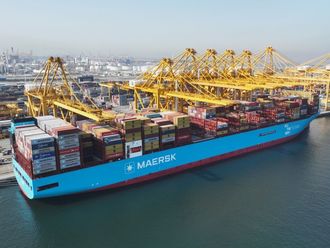There is finally a future in the futures market. If 2008 left a deep imprint on the crisis calendar and 2011 went down as a slow haemorrhage, the new year blinks in more optimism and choice for Chinese investors.
As the biggest consumer of various commodities, China has renewed its efforts to strengthen its pricing power and sway commodity prices in the international market. Its tightly regulated futures exchanges, which allow very limited access to foreign firms, have not yet developed muscles to match China's massive demand and buying volume.
Conditions are thus ripe for the launch of a number of new futures contracts this year, primarily in crude oil and silver.
Combined with this, is an expectation that the futures market will recover this year after trading volumes fell more than 30 per cent during a disastrous 2011.
Crude strength
Commodity futures have traded in China since the 1980s and has a history of high growth. But the path forward has been excruciatingly slow. The Shanghai Futures Exchange has plans to launch a crude oil futures contract in multiple currencies — dual-denominated in yuan and US dollars.
The contract will be partially available to foreign investors as regulators have expressed an intent to increase foreign investors' access to the capital market. But details like whether the contract would be settled on physical delivery or the timing of the new crude contract's launch remains unclear.
China is the world's second-largest oil importer and as of now, its oil companies can only hedge crude overseas.
The Shanghai Futures Exchange is also expected to start the first silver futures contracts this year. The addition of silver would mean that all major non-ferrous metals would be traded at the Shanghai Futures Exchange — silver, copper, aluminium, zinc and lead, which made its entry last summer.
Silver futures will boost the non-ferrous metal market and give China a better handle on pricing. Chinese companies increasingly face newer monopolies and conglomerates in the international mining sector, which keeps them on the back-foot while negotiating prices.
Major crisis
More non-ferrous metals products on its futures exchange would offer respective companies a way to avoid risks, local analysts hope.
In any case, the Chinese non-ferrous metal industry is going through a major crisis of its own due to rising costs and wafer-thin margins.
The National Development and Reform Commission raised electricity rates twice in 2011, pushing up production costs for these energy-intensive companies.
Power accounted for about 20 per cent of the total costs for foreign producers, whereas it was 45 to 50 per cent for Chinese companies.
More importantly, the futures drawing board has thrown up trading of government bond futures from this year.
The China Financial Futures Exchange is likely to restart trading of this product that was suspended 17 years ago after a major trading scandal.
Ten institutions will participate in the pilot or mock project, including futures companies, securities companies and commercial banks.
‘Simulated' trading
The project will involve "simulated" trading, so it is unclear whether actual cash settlement and delivery of the underlying bonds will occur as part of the pilot. Mock trading on the new futures market will be based on 5-year government bonds, which are said to enjoy maximum popularity.
Conditions seem to be ripe for re-launching government bond futures now as the volume of bond issuance has increased in recent years, and liquidity has improved.
Brighter future
Also, with the Dalian Commodity Exchange planning to start iron ore futures and the Zhengzhou Commodity Exchange introducing contracts for silk later in the year, a recovery from last year seems imminent.
Last year, the central government imposed negative policies on the futures market, making it perhaps the worst year for experienced traders.
It had clamped down heavily on speculation in the futures market, which it deemed too risky. Exchanges nationwide had increased margin requirements and suspended discounts for trading fees. This sombre mood may now lift with the entry of new products.
The writer is a freelance journalist based in China.












